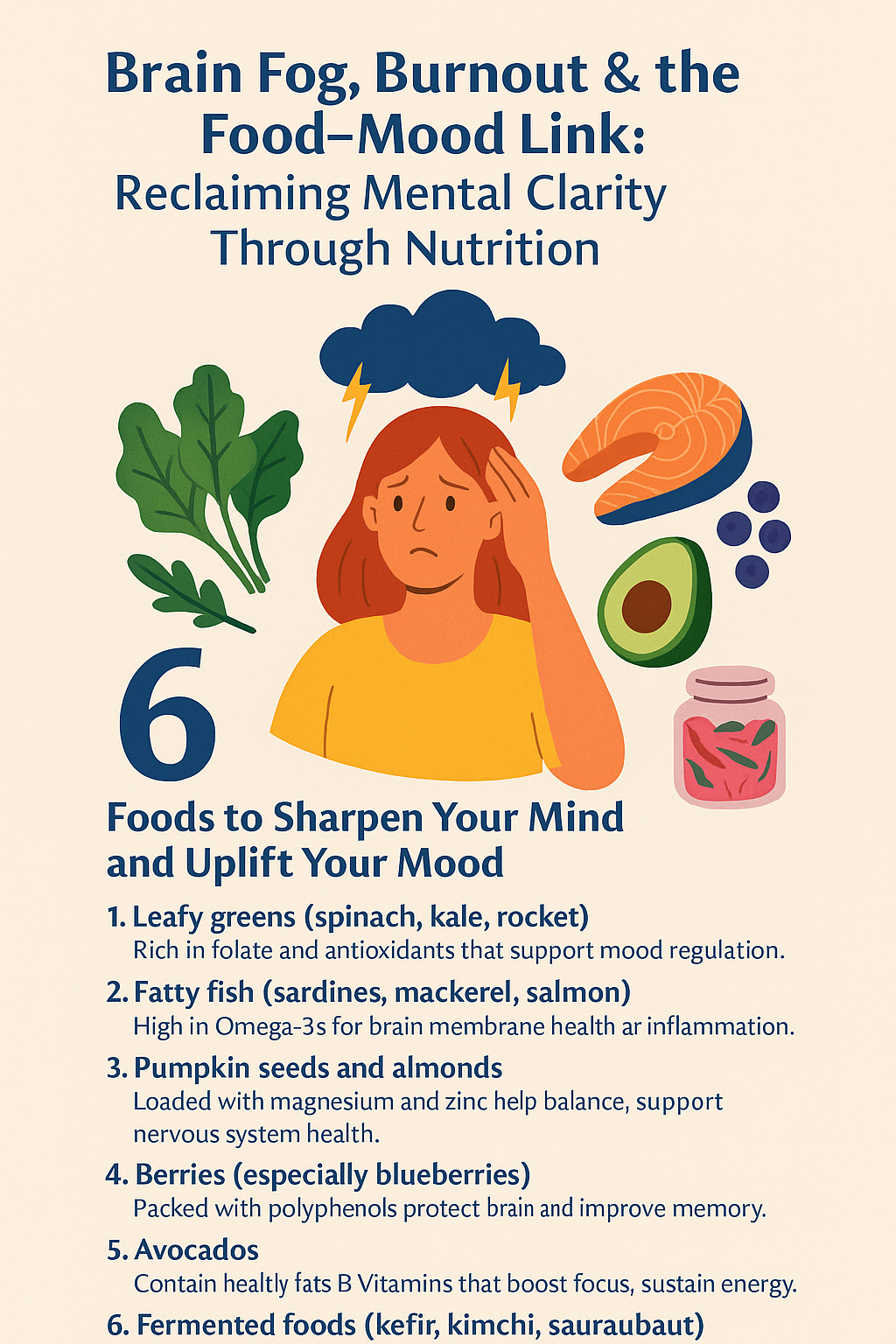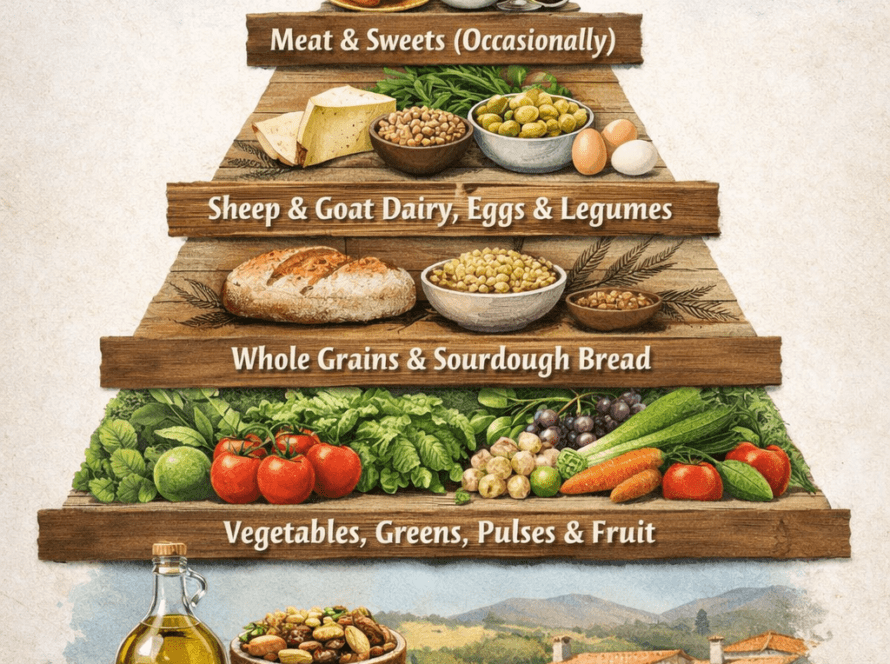As Mental Health Awareness Week continues (12–18 May), many of us are reflecting not just on diagnosed mental health conditions, but also on the everyday struggles that affect how we think, feel and function—like brain fog, burnout, and persistent low mood.
You might feel easily distracted, emotionally flat, or overwhelmed by your to-do list. While stress, sleep and lifestyle all play a part, one of the most underestimated causes is diet—and changing what you eat can help restore clarity and calm.
Let’s explore how your daily meals might be affecting your mental state—and how simple nutritional shifts can give your brain the support it needs.
What Is Brain Fog, and Why Does It Matter?
Brain fog isn’t a medical diagnosis, but a collection of symptoms including:
Lack of mental clarity
Forgetfulness or difficulty concentrating
Fatigue or low motivation
Sluggish thinking
While occasional fogginess is common, chronic brain fog can make everyday life harder and reduce emotional resilience.
The Role of Food in Mental Energy and Focus
Your brain is an energy-intensive organ. It demands a steady supply of glucose, healthy fats, and micronutrients to function optimally. Here’s how your diet could be fuelling—or fogging—your mind:
Sugar highs (and crashes): Quick energy from sugar and refined carbs causes blood sugar spikes, followed by crashes that lead to irritability and fatigue.
Nutrient depletion: Deficiencies in B vitamins, magnesium, omega-3s, and iron can impair cognition and mood.
Inflammation: Processed foods and trans fats may trigger neuroinflammation, linked to anxiety and depression.
Gut–brain imbalance: A disrupted microbiome may impair nutrient absorption and alter mood-regulating neurotransmitters.
6 Foods to Sharpen Your Mind and Uplift Your Mood
Leafy greens (spinach, kale, rocket): Rich in folate and antioxidants that support mood regulation.
Fatty fish (sardines, mackerel, salmon): High in omega-3s for brain membrane health and reducing inflammation.
Pumpkin seeds and almonds: Full of magnesium and zinc, which help balance mood and support nervous system health.
Berries (especially blueberries): Packed with polyphenols that protect the brain and improve memory.
Avocados: Contain healthy fats and B vitamins that boost focus and sustain energy.
Fermented foods (kefir, kimchi, sauerkraut): Support a healthy gut–brain axis.
Inspired by Blue Zone Wisdom
In the world’s five Blue Zones—Ikaria (Greece), Loma Linda (California), Okinawa (Japan), Nicoya (Costa Rica), and Sardinia (Italy)—people live longer, healthier lives, with strong cognitive function well into old age.
They enjoy plant-rich diets, filled with legumes, olive oil, fresh vegetables, fermented foods, and herbs. Processed sugar and factory-made foods are minimal. Their eating habits, combined with active lifestyles, strong community ties, and natural daily rhythms, support both mental and emotional balance.
Is It Time to Rethink What’s on Your Plate?
Mental health isn’t just a conversation—it’s a lifestyle. And food is one of the most powerful tools you have to protect your brain, sharpen your thinking, and manage mood naturally.
If you’ve been feeling mentally drained, I offer personalised nutritional therapy and functional testing to uncover hidden imbalances and support your wellbeing from the inside out.
Book your free 15-minute consultation to explore how I can help.
Written by Milvia Pili (FNTP)
Registered Nutritional Therapist
Founder, Blue Zone Nutrition
www.bluezonenutrition.co.uk




